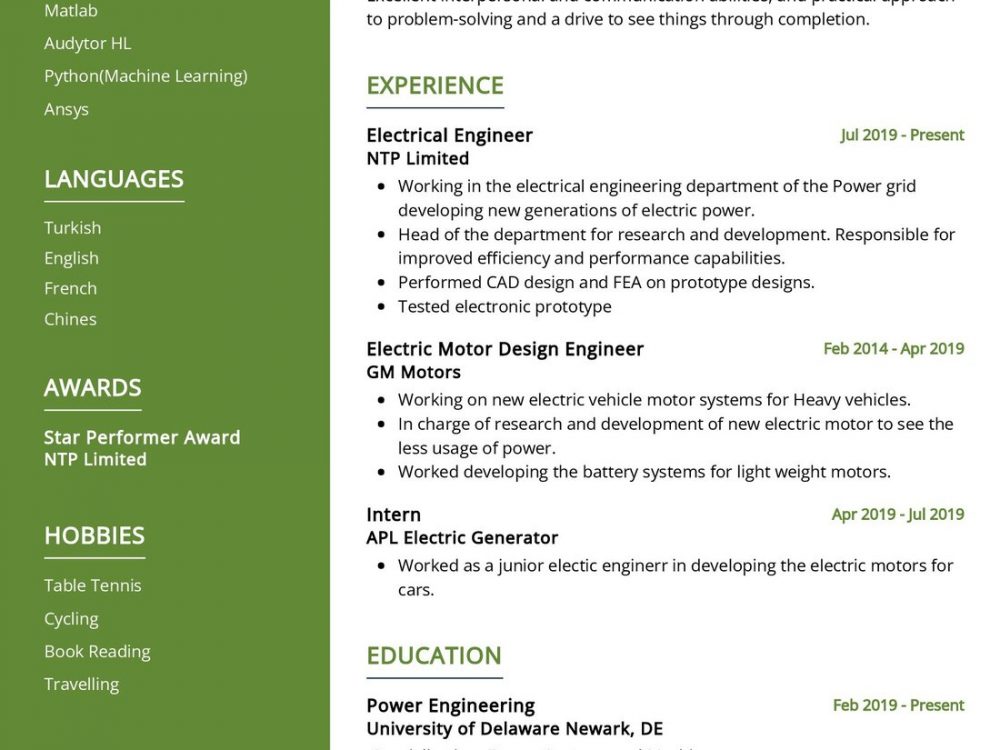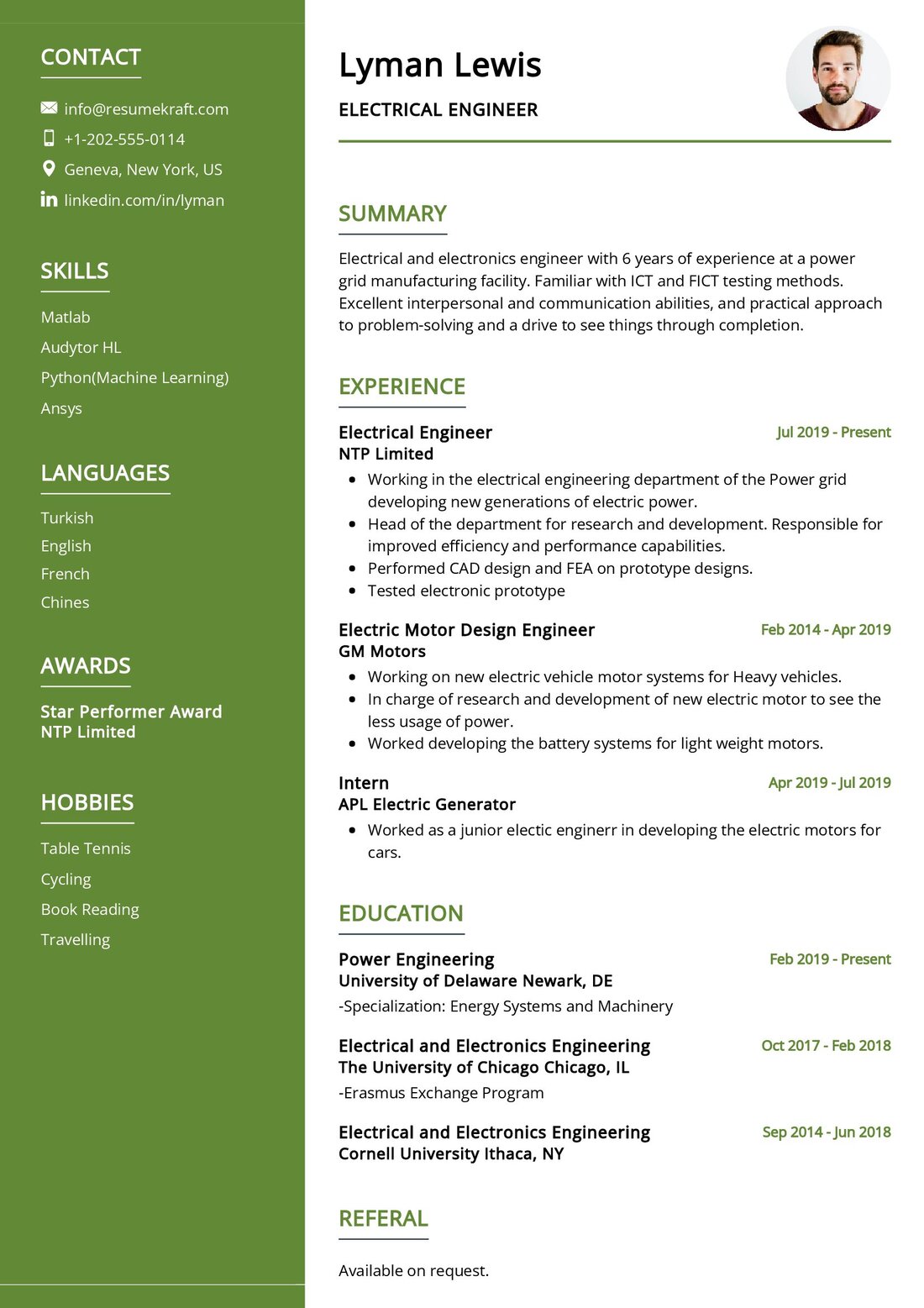What is the Role of an Electrical Engineer?
Electrical engineers play a crucial role in today’s technologically advanced world. Their expertise lies in designing, developing, and maintaining electrical systems and equipment. In this article, we will explore the multifaceted role of an Electrical Engineer, a profession that blends technical prowess with innovation and problem-solving. Let’s delve deeper into the responsibilities, skills, and qualifications that define this dynamic career.
What are the Electrical Engineer Job Requirements?
Becoming an Electrical Engineer is a journey that demands a strong educational foundation, technical skills, and a passion for innovation. Below are the prerequisites that aspiring Electrical Engineers need to fulfill:
- A Bachelor’s degree in Electrical Engineering or a related field, showcasing a solid understanding of electrical principles and theories.
- Proficiency in electrical design software and tools, essential for creating schematics and models.
- Experience in electrical system analysis and troubleshooting, demonstrating practical knowledge.
- Strong analytical and problem-solving skills, honed through coursework and real-world projects.
- Effective communication skills to collaborate with cross-functional teams and convey technical information clearly.
- Knowledge of industry standards and regulations, ensuring compliance in electrical projects.
- Adaptability to new technologies and a commitment to continuous learning in the ever-evolving field of electrical engineering.
Additional certifications, such as Professional Engineer (PE) licensure, can enhance your profile and career prospects.
What are the Responsibilities of an Electrical Engineer?
The role of an Electrical Engineer is diverse, involving the design, implementation, and maintenance of electrical systems in various industries. Here are the core responsibilities that define this profession:
- Designing electrical systems, including power distribution, lighting, and control systems, to meet project requirements and safety standards.
- Collaborating with architects and other engineers to integrate electrical systems seamlessly into building designs.
- Conducting electrical system analysis, identifying inefficiencies, and proposing improvements for enhanced performance and energy efficiency.
- Creating detailed electrical schematics and blueprints using specialized software.
- Overseeing the installation and testing of electrical systems, ensuring they function correctly and safely.
- Troubleshooting electrical issues, diagnosing problems, and implementing solutions promptly.
- Ensuring compliance with electrical codes, regulations, and safety standards throughout the project lifecycle.
- Staying updated with the latest advancements in electrical engineering technology and incorporating best practices into projects.
Each responsibility offers a unique challenge and an opportunity to make a significant impact in the field of electrical engineering.
Electrical Engineer Resume Writing Tips
Your resume is a vital tool in showcasing your qualifications and experience as an Electrical Engineer. Here are some tips to craft a compelling resume:
- Highlight your academic achievements and relevant coursework in electrical engineering.
- Detail any internships or co-op experiences, showcasing your hands-on experience in real-world projects.
- Include specific examples of successful projects, emphasizing your contributions and results achieved.
- List any relevant certifications, such as PE licensure or certifications in electrical design software.
- Personalize your resume for each job application, aligning your qualifications with the specific job requirements.
Your resume is your introduction to potential employers, so make it stand out by highlighting your strengths and accomplishments as an Electrical Engineer.
Electrical Engineer Resume Summary Examples
Your resume summary is the first impression employers will have of your qualifications. Craft a powerful summary that encapsulates your skills and expertise as an Electrical Engineer:
- “Experienced Electrical Engineer with a strong background in power distribution systems and a track record of optimizing energy efficiency in industrial settings.”
- “Dedicated Electrical Engineer with expertise in electrical system design and a commitment to delivering high-quality projects on time and within budget.”
- “Innovative Electrical Engineer with a passion for sustainable energy solutions, known for designing and implementing cutting-edge electrical systems.”
Your resume summary should entice employers to learn more about your qualifications and what you can bring to their team.
Create a Strong Experience Section for Your Electrical Engineer Resume
Your experience section is where you showcase your career journey as an Electrical Engineer. Provide details about your roles, responsibilities, and achievements:
- “Led the design and implementation of electrical systems for a large-scale manufacturing facility, resulting in a 15% reduction in energy consumption.”
- “Collaborated with a team of engineers to develop electrical schematics for a commercial building, ensuring compliance with local electrical codes.”
- “Conducted system analysis for an aerospace project, identifying and resolving electrical issues to meet stringent safety standards.”
Each experience you list should highlight your contributions and the impact you’ve had on projects and organizations.
Sample Education Section for Your Electrical Engineer Resume
Your educational background is the foundation of your career as an Electrical Engineer. Here’s how you can present your academic achievements:
- Bachelor of Science in Electrical Engineering, XYZ University, a comprehensive program that provided a strong foundation in electrical principles, 2019.
- Master of Engineering in Electrical Engineering, ABC University, specialized coursework in advanced electrical system design, 2021.
- Professional Engineer (PE) Licensure, demonstrating expertise and commitment to the field of electrical engineering, 2022.
Your education section should reflect your dedication to learning and your pursuit of excellence in electrical engineering.
Electrical Engineer Skills for Your Resume
Your skill set as an Electrical Engineer is your toolkit for success. Here are the essential skills that every Electrical Engineer should possess:
Soft Skills:
- Problem-solving skills, the ability to analyze complex electrical issues and find effective solutions.
- Communication skills, both written and verbal, for clear conveyance of technical information.
- Teamwork and collaboration, essential for working with diverse teams of engineers and professionals.
- Attention to detail, crucial for ensuring the accuracy and safety of electrical systems.
- Adaptability, the capacity to stay current with evolving technologies and industry trends.
Hard Skills:
- Proficiency in electrical design software, such as AutoCAD Electrical or EPLAN.
- Knowledge of electrical codes and regulations, including NEC and IEC standards.
- Experience with electrical testing and measurement equipment, ensuring accurate system assessment.
- Power distribution system design, including
load analysis and equipment selection.
- Electrical system troubleshooting and maintenance, critical for system reliability.
Each skill in your repertoire contributes to your ability to excel as an Electrical Engineer.
Common Mistakes to Avoid When Writing an Electrical Engineer Resume
While crafting your resume, steer clear of common mistakes that can hinder your job application prospects:
- Avoid generic resumes that do not align with the specific job requirements.
- Focus on accomplishments rather than listing job duties to showcase your impact.
- Include a cover letter to provide a personalized introduction to potential employers.
- Avoid excessive technical jargon that may obscure your qualifications for non-technical readers.
- Thoroughly proofread your resume to maintain a professional image and avoid errors.
Eliminating these mistakes will help you create a resume that is both engaging and effective in presenting your qualifications as an Electrical Engineer.
Key Takeaways for Your Electrical Engineer Resume
As you conclude your resume, keep these key takeaways in mind:
- Highlight your problem-solving abilities and your capacity to find innovative solutions.
- Emphasize your proficiency in electrical design software and compliance with industry standards.
- Showcase your experience in designing and implementing electrical systems that meet project requirements.
- Include your education and certifications to demonstrate your commitment to excellence in electrical engineering.
With these key takeaways, your resume will effectively communicate your qualifications and make a lasting impression on potential employers.
Finally, feel free to utilize resources like AI Resume Builder, Resume Design, Resume Samples, Resume Examples, Resume Skills, Resume Help, Resume Synonyms, and Job Responsibilities to create a standout application and prepare for the Electrical Engineer job interview.
Armed with these insights and tips, you are now well-equipped to craft a resume that effectively communicates your qualifications as an Electrical Engineer, paving the way for a successful career in this dynamic field.


